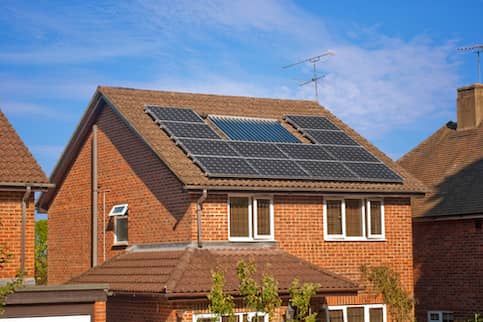
Empowering Independence: Navigating the World of Off-Grid Power Systems
The concept of off-grid power systems has gained prominence as a sustainable and independent solution for meeting energy needs in diverse environments. This article explores the various facets of off-grid power systems, shedding light on their benefits, components, and the transformative impact they can have on communities and individuals.
Understanding Off-Grid Power Systems: Breaking Free from the Grid
Off-grid power systems operate independently of the traditional electric grid, providing a self-sufficient and decentralized energy source. These systems are designed to generate, store, and manage power on-site, offering a viable alternative for areas with limited or no access to centralized power infrastructure. They empower users to break free from dependence on the grid.
Renewable Energy Integration: The Backbone of Off-Grid Systems
Renewable energy sources, such as solar panels and wind turbines, form the backbone of off-grid power systems. Harnessing the energy of the sun and wind allows these systems to generate electricity in an environmentally friendly and sustainable manner. The integration of renewable energy technologies ensures a continuous and reliable power supply, even in remote locations.
Energy Storage Solutions: Overcoming Intermittency Challenges
A key challenge in off-grid power systems is managing the intermittency of renewable energy sources. Energy storage solutions, such as batteries and advanced storage technologies, play a crucial role in overcoming this challenge. These systems store excess energy generated during peak production periods for use during periods of low energy production or increased demand.
Inverter Technology: Converting DC to AC for Versatility
Inverter technology is a vital component of off-grid power systems, converting direct current (DC) generated by renewable sources into alternating current (AC) suitable for household and industrial use. Advanced inverters not only facilitate efficient energy conversion but also provide flexibility in connecting various appliances and devices to the off-grid system.
Smart Microgrids: Localized Power Distribution
Off-grid power systems often operate as smart microgrids, offering localized power distribution. These microgrids can be tailored to the specific needs of a community or individual. Smart microgrid technologies enable efficient management of energy resources, load balancing, and the incorporation of diverse energy sources for optimal performance.
Energy Efficiency Measures: Maximizing Power Output
Energy efficiency measures are integral to the success of off-grid power systems. Implementing energy-efficient appliances and practices ensures that the available power is used wisely and minimizes waste. These measures contribute to a more sustainable and cost-effective operation of off-grid systems, making them economically viable in the long run.
Off-Grid Power for Remote Areas: Bridging the Energy Gap
Off-grid power systems serve as a lifeline for remote and underserved areas where traditional grid infrastructure is impractical or economically challenging to implement. These systems bring electricity to off-grid communities, powering homes, schools, healthcare facilities, and businesses. The ability to deploy energy solutions in remote areas contributes to bridging the energy gap and improving quality of life.
Resilience and Disaster Preparedness: Off-Grid Advantages
Off-grid power systems offer resilience in the face of natural disasters and grid failures. When the centralized grid goes down, off-grid systems continue to provide power, ensuring that essential services can operate. The decentralized nature of these systems enhances overall community resilience, making them a valuable asset in disaster-prone regions.
Off-Grid Power for Sustainable Living: Individual and Community Impact
Beyond remote areas, off-grid power systems appeal to individuals and communities seeking sustainable living options. Whether as a primary energy source or a supplementary system, off-grid solutions empower users to reduce their environmental footprint, adopt renewable energy practices, and gain greater control over their energy consumption.
Exploring Off-Grid Power Systems Further
For a comprehensive exploration of off-grid power systems, their applications, and the latest innovations, visit Off-grid power systems. This resource provides valuable insights into the diverse world of off-grid energy solutions, offering information on technologies, case studies, and the transformative potential of decentralized power.
Conclusion: Empowering Lives with Off-Grid Power
In conclusion, off-grid power systems represent a transformative force in the energy landscape, providing independence, resilience, and sustainability. Whether bringing electricity to remote areas, enhancing disaster preparedness, or promoting sustainable living, off-grid solutions are empowering lives and communities worldwide. As technology continues to advance, the impact of off-grid power systems on global energy access is set to grow, offering a brighter and more sustainable future.


